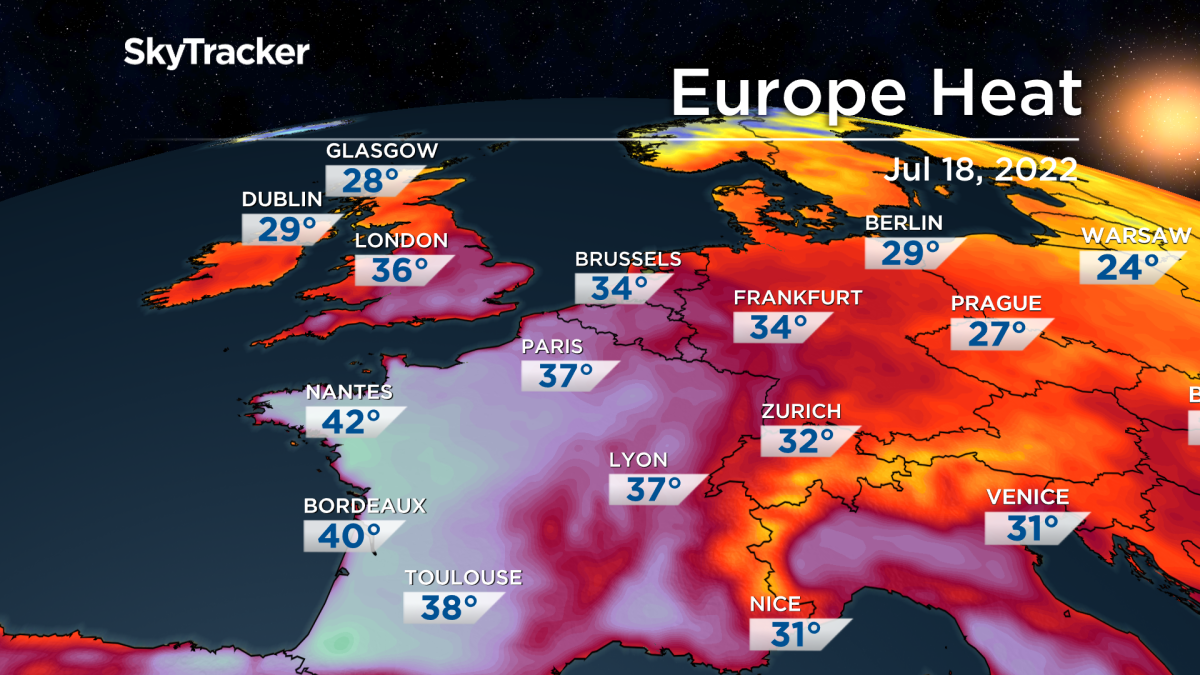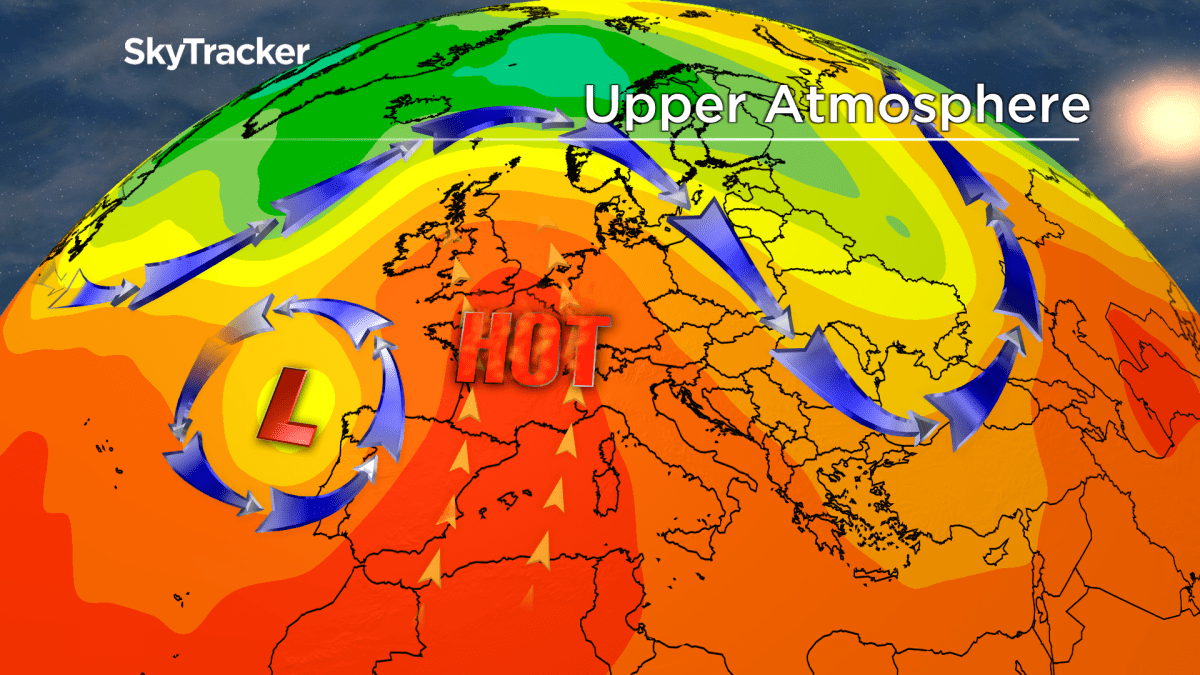Scorching weather has disrupted travel in the United Kingdom as an extreme heat wave is sweeping across southern Europe.

Britain’s first-ever “red” alert warning came into effect Monday for large parts of England and will last through Tuesday when temperatures may reach a record 40 degrees Celsius (104 degrees Fahrenheit) for the first time.
On Monday, high temperatures in the U.K. reached the upper 30s but Tuesday will be even hotter with places like London hitting the 40-degree mark, said Anthony Farnell, Global News’s chief meteorologist.
“This will likely be the warmest temperature ever recorded in the U.K.,” he said.
Meanwhile, wildfires are raging through France and Spain, where a week-long heat wave has caused hundreds of deaths. Belgium and Germany were among the countries expecting the heat wave to hit them in coming days.
Summer is the peak season for travel to Europe, but given the current extreme weather that is expected to continue, experts are urging travellers to adjust their plans to minimize risks.
“Heat stress is a silent killer,” said Glen Kenny, a professor and research chair in human environmental physiology at the University of Ottawa.
“What’s important to understand is there’s just always that risk and it can come on like a light bulb.”
While older adults and those with chronic health conditions are most vulnerable, heat-related stress can also affect young people and kids, he said.
Being a tourist amid a heat wave is like a “two-edged sword,” Kenny said. In addition to gaining heat from the environment, he said any kind of physical activity while you’re on the go is also going to add heat to the body.
In that case, people should plan out their trip in a way that would reduce the burden that they would experience from outdoor exposure and physical exertion, he said.
This means staying indoors more often at museums or restaurants and also taking transportation which provides a cool environment.

Martin Firestone, a travel insurance broker in Toronto, said Europe is a go-to destination for more than 50 per cent of his clients — and the summer heat wave has not forced any cancellations so far.

Get weekly health news
“Definitely, a lot of the sales right now for travel are for these European destinations,” he said, including, France, Germany, the U.K., and Spain.
Given the extreme heat warnings, his advice for travellers is to get full protection when it comes to buying medical insurance and opting for a cancellation and interruption policy in case they need to opt out or cut their trip short.
“I think it’s going to make a very interesting scenario for those who are travelling, especially to those regions that are affected at this point,” he said.
Travel disruptions
In Britain, train operators asked customers not to travel unless absolutely necessary, saying the heat was likely to warp rails and disrupt power supplies, leading to severe delays.
Some routes were running at reduced speed or shutting down entirely from mid-afternoon, when temperatures were expected to peak.
London Luton Airport suspended flights Monday after a surface defect was found on its runway due to the high temperatures. The airport said in a tweet that service will resume as soon as possible.
The good news for the U.K. and surrounding countries is that this heat wave is expected to shift east and dissipate later this week which limits the long-term exposure to heat, said Farnell.
“There are similarities when you compare this Europe heat event with the heat dome that set up across B.C. last summer,” he said.
What are the health risks?
If travellers were already exposed to the heat before they travel, that will help in adapting and acclimating to the hot conditions, Kenny said.
“If they’re going there and they’ve not been exposed to the heat here for bit, they won’t have that same capacity,” he explained.
Signs of heat stress can include headaches, thirst, fatigue, dizziness, feeling unwell, irritable, disoriented and despondent, Kenny said.

When travelling with family, it’s important to pick up on those “critical clues” or any change in behaviours and immediately seek help.
“When somebody starts to show confusion or you see that they’re not sweating anymore, these are clear signs (that) you should take action,” he said.
When packing, keep a hat, umbrella, sunscreen and wear clothing that will allow good ventilation, and cover a limited amount of the body, Kenny said.
— with files from Reuters and The Associated Press
- Canadians involved in tourist bus crash in Dominican Republic, embassy says
- Canadians stuck in Middle East say cities ‘very tense’ as Iran conflict escalates
- Alberta mulls ditching time switch — again — as B.C. moves to permanent daylight
- As oil and gas prices rise amid Iran conflict, what comes next?










Comments
Want to discuss? Please read our Commenting Policy first.